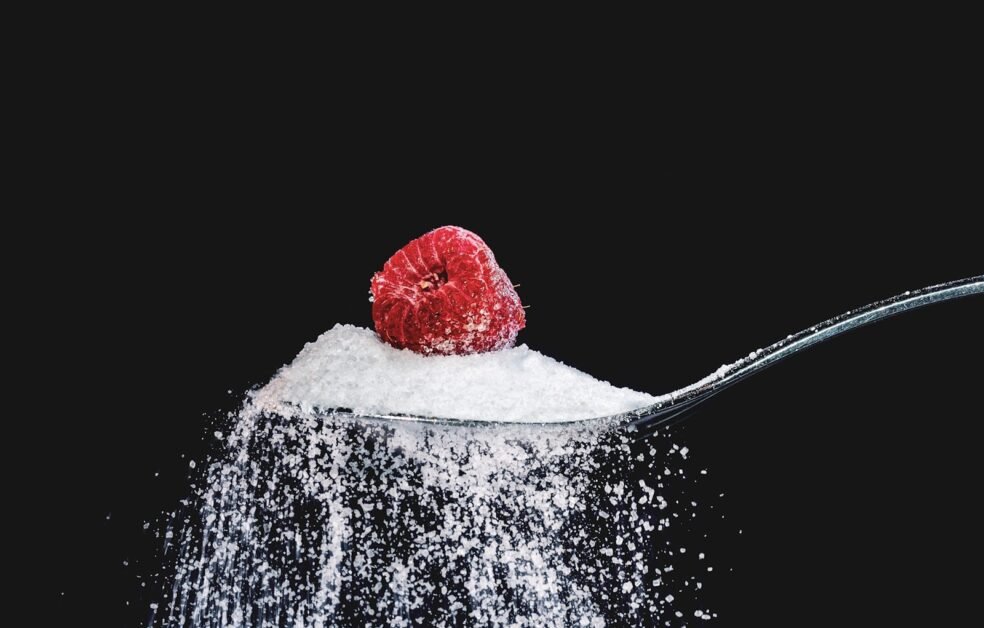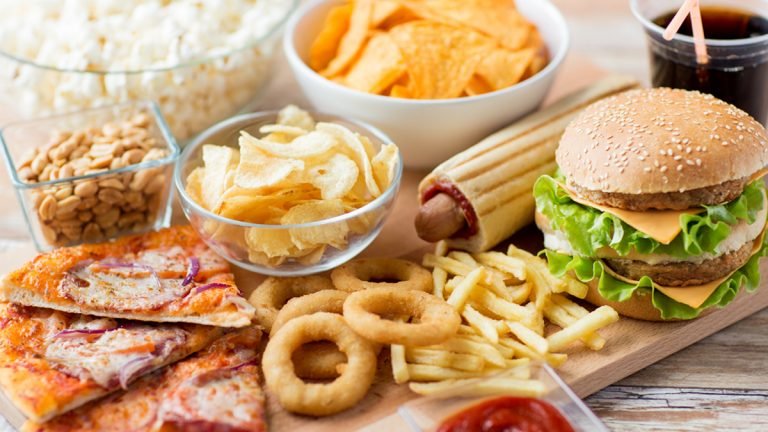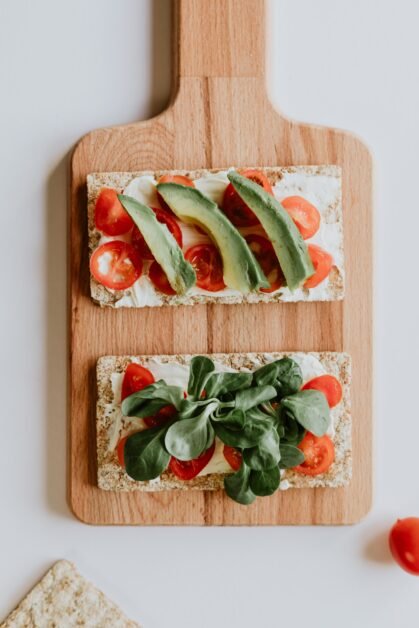Why Do Diabetics Crave Sugar: 4 Important Facts
Table of Contents
Why Do Diabetics Crave Sugar: 4 Important Facts
Are you a diabetic and wondering Why Do Diabetics Crave Sugar? You’re not alone. Many people with diabetes find themselves battling intense cravings for sweets and sugary treats. But have you ever wondered why this happens? What is it about diabetes that makes us yearn for those forbidden indulgences? In this blog post, we’ll dive deep into the science behind sugar cravings in diabetics and explore the biological and psychological factors at play. So grab a cup of tea (without the sugar, of course!) and let’s unravel the mystery behind these irresistible temptations.
Why Do Diabetics Crave Sugar: The Science Behind Sugar Cravings
Have you ever wondered why diabetics often find themselves craving sugar? It turns out that there is a scientific explanation behind these cravings. Let’s dive into the fascinating world of biology and psychology to understand what causes this phenomenon.
Biologically, our bodies are wired to seek out sugar for its quick energy boost. When we consume sugary foods, our blood sugar levels spike, providing us with an instant surge of energy. However, in individuals with diabetes, this process becomes disrupted due to insulin resistance or insufficient insulin production.
Psychologically, sugar can also have addictive properties. Consuming sweet foods triggers the release of dopamine in the brain – a neurotransmitter associated with pleasure and reward. Over time, our brains start associating sugar with positive emotions, leading to cravings when those feelings are lacking.
Furthermore, blood sugar fluctuations play a role in triggering cravings among diabetics. When blood glucose levels drop too low (hypoglycemia), it sends signals to the brain that something is amiss. In response, the body craves quick sources of glucose like sugary snacks or drinks to bring levels back up.
Managing these cravings can be challenging but not impossible for diabetics. Adopting a well-balanced diet that includes complex carbohydrates and fiber-rich foods can help stabilize blood sugars and reduce cravings over time. Regular exercise has also been shown to improve insulin sensitivity and regulate appetite.
There are both biological and psychological factors at play when it comes to understanding why diabetics crave sugar. By implementing healthy lifestyle choices and seeking support from healthcare professionals specialized in diabetes management, individuals can gain better control over their cravings while still enjoying a balanced diet tailored towards their specific health needs.
Why Do Diabetics Crave Sugar? Biological and Psychological Factors…
Biological and psychological factors play a significant role in why do diabetics crave sugar. Let’s delve into the science behind these cravings.
On the biological front, our bodies are wired to seek out sweet and sugary foods. This is because sugar provides us with quick energy. When we consume sugar, it triggers the release of dopamine in our brain, which gives us a pleasurable sensation. Diabetics may experience an increased desire for sugar due to imbalances in their insulin levels or fluctuations in blood glucose levels.
Psychologically, stress can also contribute to sugar cravings among diabetics. Many people turn to food as a way to cope with stress or emotions, and sugary treats can provide temporary comfort or relief. Additionally, restriction of certain foods due to diabetes management can lead to feelings of deprivation and make the craving for sweets even stronger.
It is important for diabetics to be mindful of these biological and psychological factors when managing their sugar cravings. Finding healthy alternatives such as fruit or incorporating small amounts of natural sugars into their diet can help satisfy cravings without causing spikes in blood glucose levels.
Remember that everyone’s experience with diabetes and cravings is unique, so it’s essential for individuals to work closely with healthcare professionals who specialize in diabetes care to develop personalized strategies for managing their specific needs.
Why Do Diabetics Crave Sugar? Blood Sugar Fluctuations and Cravings
One of the key reasons why diabetics often crave sugar is due to fluctuations in their blood sugar levels. When blood sugar levels drop too low, it can trigger intense cravings for quick sources of energy, such as sugary foods or drinks.
When diabetes isn’t properly managed, the body struggles to regulate glucose levels effectively. This can lead to frequent spikes and drops in blood sugar, creating a rollercoaster effect on cravings. The body’s natural response to low blood sugar is to seek out carbohydrates and sugars as a way to quickly raise those levels.
Additionally, insulin resistance – a common characteristic of type 2 diabetes – can also contribute to increased cravings for sugary foods. Insulin helps transport glucose from the bloodstream into cells for energy, but when there’s resistance, this process becomes less efficient. As a result, the body may still have high levels of glucose in the bloodstream despite having enough insulin present. This can lead to persistent feelings of hunger and craving more sweet treats.
Furthermore, certain psychological factors may exacerbate these cravings. Stress and emotions play a significant role in our eating habits; many people turn to comfort foods like cookies or ice cream when they’re feeling down or anxious. For diabetics dealing with the daily challenges of managing their condition, these emotional triggers combined with physiological imbalances make resisting sugary temptations even harder.
Understanding how blood sugar fluctuations impact cravings is crucial for managing diabetes effectively. By maintaining stable blood glucose levels through regular monitoring and proper medication adherence (if necessary), individuals with diabetes can better control their food choices and reduce the intensity of those pesky sugar cravings.
It’s important not only for diabetics but also anyone trying to manage their overall health by making mindful dietary decisions – reducing added sugars intake while incorporating balanced meals rich in whole grains, lean proteins, fruits, vegetables – will help stabilize blood sugar throughout the day leading towards better overall health.
Managing Sugar Cravings in Diabetes
1. Understanding the Role of Carbohydrates
Carbohydrates are broken down into sugar during digestion, causing blood sugar levels to rise. It’s important for diabetics to choose their carbohydrate sources wisely and opt for complex carbohydrates that release glucose slowly into the bloodstream, helping to prevent sudden spikes and crashes in blood sugar levels.
2. Balancing Meals and Snacks
Eating regular meals and snacks throughout the day can help keep blood sugar levels stable and reduce cravings for sugary foods. Aim to include a balance of protein, healthy fats, and fiber with each meal or snack as these nutrients can slow down the absorption of carbohydrates, preventing rapid fluctuations in blood sugar.
3. Incorporating Regular Physical Activity
Engaging in regular physical activity not only helps maintain a healthy weight but also improves insulin sensitivity, meaning your body can better regulate its blood sugar levels. Exercise releases endorphins which can naturally elevate mood and reduce cravings for sugary treats.
4. Finding Healthy Alternatives
Instead of giving in to sugary cravings, explore healthier alternatives such as fresh fruits (in moderation), yogurt with no added sugars or artificial sweeteners, nuts/seeds, or dark chocolate with high cocoa content.
5. Managing Stress Levels
Stress has been linked to increased cravings for sweets due to hormonal imbalances it causes within our bodies. Finding healthy ways to manage stress such as practicing relaxation techniques (deep breathing exercises), engaging in hobbies you enjoy, getting enough sleep each night plays an essential role in reducing sugary cravings.
Remember that managing sugar cravings is all about finding what works best for you personally!
Why Do Diabetics Crave Sugar: Conclusion
It is clear that there are multiple factors at play when it comes to why diabetics crave sugar. From biological and psychological influences to blood sugar fluctuations, these cravings can be difficult to resist. However, managing sugar cravings is crucial for maintaining stable blood glucose levels and overall health.
It is important for diabetics to understand the science behind their cravings and take proactive steps to manage them. This may involve making dietary changes such as reducing processed sugars and incorporating more fiber-rich foods into meals. Regular exercise can also help regulate blood sugar levels and reduce cravings.
Additionally, seeking support from healthcare professionals or joining support groups can provide valuable guidance and motivation on this journey towards better diabetes management.
Remember, every individual’s experience with diabetes is unique, so finding what works best for you may take some trial and error. By staying informed about your condition, practicing self-care, and seeking professional advice when needed, you can successfully navigate the challenges of living with diabetes while minimizing the impact of sugar cravings on your overall wellbeing.
So embrace a balanced approach to managing your diet, stay active, seek out support networks – all of which will ultimately lead you towards a healthier lifestyle as a diabetic!
FAQ’s
1. Can sugar cravings be a sign of diabetes?
Yes, intense sugar cravings can sometimes be a sign of diabetes. When blood sugar levels are not properly regulated, the body may send signals to crave more sugar in order to compensate for the lack of energy being absorbed by the cells.
2. Are all diabetics prone to sugar cravings?
Not all diabetics experience intense sugar cravings. It varies from person to person and depends on various factors such as their overall diet, lifestyle choices, and how well they are managing their condition.
3. How can I manage my sugar cravings if I have diabetes?
Managing your sugar cravings when you have diabetes requires a combination of strategies. Here are some tips that may help:
– Focus on eating regular meals with balanced amounts of carbohydrates, protein, and healthy fats.
– Choose complex carbohydrates like whole grains rather than refined sugars or simple carbs.
– Incorporate plenty of fiber-rich foods into your diet as they help regulate blood glucose levels and keep you feeling fuller for longer.
– Stay hydrated throughout the day as dehydration can sometimes trigger false hunger signals.
– Engage in regular physical activity as it helps regulate blood glucose levels and reduces stress which can contribute to craving sugary foods.
4. Are there any alternatives to satisfy sweet cravings for diabetics?
Yes! There are several natural alternatives available that can satisfy your sweet tooth without causing large spikes in blood sugar levels:
– Stevia: A plant-based sweetener that is low in calories and has no effect on blood glucose levels.
– Xylitol: A naturally occurring alcohol found in many fruits and vegetables which has fewer calories than table sugar.
– Fresh fruit: Opt for fresh fruits like berries or citrus fruits which contain natural sugars along with beneficial nutrients and fiber
5. When should I seek medical advice about my sugar cravings?
If you find yourself constantly struggling with intense sugar cravings, despite following a balanced diet and managing your diabetes properly, it may be worth seeking medical advice. Your doctor or healthcare provider can help you develop personalized strategies to manage your cravings and ensure that your blood sugar levels remain under control.







